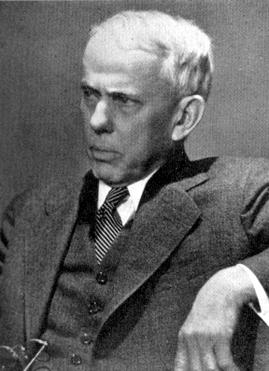E. S. Gosney facts for kids
Quick facts for kids
E.S. Gosney
|
|
|---|---|
 |
|
| Born | November 6, 1855 Kenton County, Kentucky, United States
|
| Died | September 14, 1942 (aged 86) |
| Alma mater | Saint Louis University School of Law |
| Occupation | |
Ezra Seymour Gosney (born November 6, 1855 – died September 14, 1942) was an American businessman and generous giver (known as a philanthropist). He is known for supporting ideas about "improving" the human race, which are now widely seen as wrong and harmful. In 1928, he started the Human Betterment Foundation (HBF) in Pasadena, California. The foundation aimed to "protect and better the human family in body, mind, character, and citizenship." Rufus B. von KleinSmid, who was the President of the University of Southern California, helped him start it.
Contents
About Ezra Gosney
Ezra Gosney was born in Kenton County, Kentucky, in 1855. He studied law and earned a degree from the Saint Louis University School of Law in 1880. After finishing his studies, he moved to Flagstaff, Arizona. There, he helped create a group for Wool Growers. He also got married and had two daughters with his wife.
Around 1905, Gosney moved his family to Southern California. He wanted to leave the "wild west" feeling of Arizona behind, especially while raising his daughters. In Pasadena, California, he became very active in the business world. He was especially involved in growing citrus fruits like lemons and other crops.
Gosney's Philanthropy
Around this time, Ezra Gosney also started giving more money to good causes. He helped set up the first California group for the Boy Scouts of America. In 1907, he also gave $12,500 to help start the Polytechnic School.
By the 1920s, Gosney had become quite wealthy. He owned one of the biggest lemon groves in California. He also served as a director for many banks, trust companies, and other businesses.
The Human Betterment Foundation
While working in Pasadena, Gosney met Paul B. Popenoe, a biologist who supported eugenics. Eugenics was a set of ideas popular at the time. People who believed in eugenics thought they could "improve" the human population by controlling who could have children. Today, these ideas are widely rejected because they led to unfair and harmful practices.
Gosney and Popenoe worked together on research. In 1929, they published a book called ... for Human Betterment: A Summary of Results of 6,000 Operations in California, 1909–1929.
In 1926, Gosney began planning what would become the Human Betterment Foundation in 1928. This foundation was set up to promote research and support for eugenics. Gosney said the Foundation would work for:
- the advancement and betterment of human life, character, and citizenship, particularly in the United States of America, in such manner as shall make for human progress in life. It is not the primary intention of to engage in the care of the unfortunate or in any form of relief work, but rather to foster and aid constructive and educational efforts for the protection and betterment of human family in body, mind, character, and citizenship in life. (Gosney and Popenoe 1929, p.192)
The first group of leaders for the Foundation included Gosney himself. Other members were Henry M. Robinson (a banker), George Dock (a doctor), and David Starr Jordan (a chancellor from Stanford University). Later, other important people joined, like Lewis Terman (who created the Stanford-Binet test of IQ).
The Foundation also worked with the California Institute of Technology (Caltech). Robert Millikan, a physicist from Caltech who won a Nobel Prize, joined the HBF board in 1937. The Foundation also paid for a newspaper column in the Los Angeles Times about "social eugenics." They also funded a radio show and gave hundreds of talks across the country. Their goal was to teach people about eugenics. Along with the American Eugenics Society, the HBF was one of the most active groups promoting eugenics in the United States.
Legacy and Modern Views
When Gosney died in 1942, his daughter closed the Foundation. She gave the remaining money to Caltech. In 1943, Caltech used this money to create a research fund for biology, named after Gosney. The old records of the Human Betterment Foundation are kept at Caltech in Pasadena.
Since the late 1900s, public opinions have changed a lot. Most people now strongly disagree with Gosney's work and eugenics in general. In January 2021, the leaders of Caltech decided to remove Gosney's name from campus buildings and other memorials. This was done because of his connection to the Human Betterment Foundation and its harmful ideas.
See also
- Eugenics in the United States

